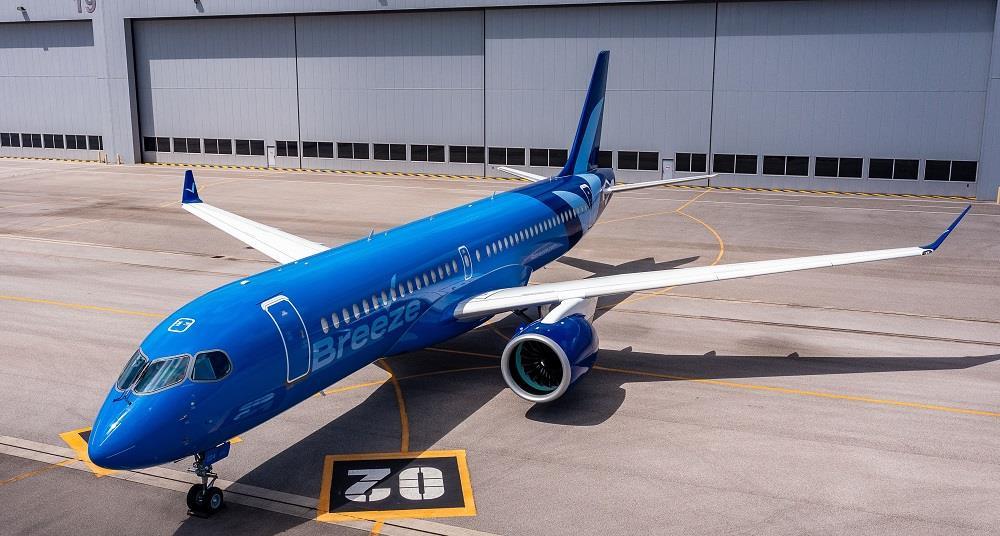Airbus chief supports counter-tariffs on Boeing but not US aerospace subsystems
Company
Legal Links
Contact
- +44 7947 753363
- contact@skylineairporttransfers.co.uk
- 6 Walsall Street Bilston Wolverhampton WV14 0AT
Recent Posts
© Skyline Airport Transfers. Created by![]() Beaphoenix WebDesign ltd
Beaphoenix WebDesign ltd
Popular Locations:
Birmingham: Aston, Bournville, Edgbaston, Erdington, Great Barr, Hall Green, Handsworth, Harborne, Northfield, Quinton, Soho, Sutton Coldfield, Amblecote, Brierley Hill, Coseley, Cradley, Gornal, Halesowen, Kingswinford, Lye, Netherton, Sedgley, Stourbridge, Quarry Bank, Bearwood, Blackheath, Cradley Heath, Great Bridge, Old Hill, Rowley Regis, Smethwick, Tipton, Tividale, Wednesbury, West Bromwich, Balsall Common, Bickenhill, Castle Bromwich, Chelmsley Wood, Dorridge, Elmdon, Hampton in Arden, Kingshurst, Knowle, Marston Green, Meriden, Monkspath, Hockley Heath, Shirley, Aldridge, Birchills, Bloxwich, Brownhills, Darlaston, Leamore, Palfrey, Pelsall, Pheasey, Shelfield, Streetly, Willenhall, Bilston, Blakenhall, Bushbury, Compton, Ettingshall, Heath Town, Oxley, Penn, Tettenhall, Wednesfield, Burntwood, Lichfield, Cannock, Rugeley, KIDDERMINSTER, Brierly Hill,
STOURPORT-ON-SEVERN
Coventry: Allesley, Binley, Keresley, Stoke, Tile Hill
Leicester: Abbey Rise, Ashton Green, Aylestone, Beaumont Leys, Bede Island, Belgrave, Blackfriars, Braunstone, Braunstone Frith, Bradgate Heights, Clarendon Park, Crown Hills, Dane Hills, Evington, Evington Valley, Eyres Monsell, Frog Island, Goodwood, Hamilton, Highfields, Horston Hill, Humberstone, Humberstone Garden, Kirby Frith, Knighton, Mowmacre Hill, Netherhall, Newfoundpool, New Parks, North Evington, Northfields, Rowlatts Hill, Rowley Fields, Rushey Mead, Saffron, Southfields, South Knighton, Spinney Hills, Stocking Farm, Stoneygate, St. Matthew’s, St. Mark’s, St. Peters, Thurnby Lodge, West End, West Knighton, Western Park, Woodgate
Derby: Matlock, Ripley, Ashbourne, ILKESTON, SWADLINCOTE , BURTON-ON-TRENT, BAKEWELL,
ALFRETON, BELPER, HEANOR
Telford: Market Drayton, Newport, Shifnal, Broseley, Much Wenlock
Stoke: Stoke-on-Trent, Newcastle, Leek, Uttoxeter, Stone, Stafford
Worcester: Worcester, Droitwich, Pershore, Broadway, Evesham, Malvern, Tenbury Wells
Gloucester: Gloucester, Cheltenham, Stroud, Cirencester, Tewkesbury, Badminton, Berkeley, Blakeney, Chipping Campden, Cinderford, Coleford, Drybrook, Dursley, Dymock, Fairford, Lechlade, Longhope, LydbrookLydney, Mitcheldean, Moreton-in-Marsh, Newent, Newnham, Ruardean, Stonehouse, Tetbury, Westbury-on-Severn, Wotton-under-Edge.
Nottingham: Nottingham, Sutton-in-Ashfield, Mansfield, Newark, Southwell, Grantham, Sleaford
Leicester: Leicester, Hinckley, Loughborough, Melton Mowbray, Oakham Market, Harborough, Lutterworth, Wigston, Ashby-de-la-Zouch, Ibstock, Markfield
Oxford: Oxford, Kidlington, Chipping Norton, Thame, Wallingford, Didcot, Wantage, Abingdon, Banbury, Carterton, Woodstock, Bicester, Witney, Chinnor, Watlington
Chester: Chester, Deeside, Bagillt, Buckley, Holywell, Birkenhead, Preston, Wallasey, Wirral, Neston, Ellesmere Port, Prenton
Airports we serve:
BHX: Birmingham Airport
EMA: East Midlands Airport
LHR: London Heathrow Airport
MAN: Manchester Airport
LGW: London Gatwick Airport
LTN: London Luton Airport
SOU: Southampton Airport
BRS: Bristol Airport
LPL: Liverpool John Lennon Airport
LCY: London City Airport
STN: London Stansted Airport



Airbus is seeking to reduce its potential exposure to US tariffs on aircraft, but chief executive Guillaume Faury is opposed to a sweeping European Union retaliation.
While Faury supports the EU’s considering tariffs on US aircraft imports, he believes extending them to components and subsystems would be counterproductive.
“We are not recommending anybody, including EU, [should] tariff equipment, systems, whatever, coming from the US going to Europe,” he said, speaking to FlightGlobal ahead of the Paris air show.
“We’re not interested in damaging the European industry as much as the US tariffs have damaged the US industry.”
The Trump administration’s on-off tariff barrage extended to the EU earlier this year, although certain threatened duties have been suspended to allow time for negotiations.
Faury says the tariff situation is “quite dynamic” and that Airbus’s priorities are to “monitor, understand and adapt”.
He points out that 80% of the company’s aircraft activity – and more in terms of production – is not US-based. But it has US final assembly lines for the A320neo and A220.
“These are the activities mostly impacted – plus what we deliver from Europe to the US,” he says, including a number of A320neo and A321neo jets, as well as widebodies to Delta Air Lines.
Faury says the airframer is working with its customers to identify solutions, drawing on its previous experience with aerospace tariffs which arose in 2019 as a result of a long-fought World Trade Organization dispute.
“We’re sort of trying to do the same,” says Faury. “It’s a broader and more complex picture – not only tariffs on [aircraft], it’s tariffs across the board.”
He points out that the tariffs have several layers – their precise application depends on such aspects as the USMCA free-trade agreement, relevant to Canada, where Airbus manufacturers A220s.
Goods-returned relief becomes a consideration with imports containing a certain quantity of US content, while a duty drawback cancels tariffs on imported systems which are then installed in an exported aircraft.
“There is a world of complexity and I’m just scratching the surface of that complexity,” says Faury. But he believes the tariffs are “primarily hurting the US industry”.
“We’re looking at what needs to be done to reduce exposure to tariffs, and there are plenty of options,” he says.
“The point is, to trigger those options, you need to decide whether you assume we have a short-term issue that will go away – you just wait for things to get better – or you make the assumption we’re here to stay with tariffs on the long run.
“You have to buy in the US when you’re manufacturing in the US, and delivering to the US, and you have to consider that the rest is a separate activity to be de-risked on US tariffs.”
Source link
Share This:
skylinesmecher
Plan the perfect NYC Memorial Day weekend
Pack only what you need and avoid overpacking to streamline the check-in and security screening…
LA’s worst traffic areas and how to avoid them
Consider using alternative routes, such as Sepulveda Boulevard, which runs parallel to the 405 in…
Lessor TrueNoord brings in first Airbus jets with Breeze A220 transaction
Lessor TrueNoord has entered its first Airbus agreement, with a sale-and-leaseback of three A220-300s to…
Middle East flight cancellations surge as Israel-Iran conflict closes airspace
Flight cancellations to and from the Middle East continue to climb, as airspace and airport…
Rolls-Royce teases UltraFan 30 features as demonstrator heads for design freeze
Rolls-Royce has shown off a full-scale mock-up of its proposed UltraFan 30 engine aimed at…
Rolls-Royce remains unconvinced that open-rotor benefit outweighs integration risk
Rolls-Royce has emphasised its scepticism over the open-rotor concept, as it unveils its ducted UltraFan…
NATO next-generation rotorcraft project closes on final requirements as Boeing re-emerges as possible bidder
A project involving six NATO members aiming to develop a next-generation military helicopter has agreed…
UK Royal Air Force advances crew training capability as delayed Boeing E-7A Wedgetail nears service entry
The UK Royal Air Force (RAF) has edged closer to reinstating its lapsed airborne early…
Croatia Airlines pressured by weak revenue growth and continuing fleet-renewal costs
Croatia Airlines’ full-year losses have doubled, a situation which the carrier attributes to weak revenue…
London City consults on shallower glideslope to enable A320neo operations
London City airport is seeking to implement a shallower glideslope of 4.49° – compared with…
GTF shop visits continue to drive commercial maintenance revenues at MTU
MTU Aero Engines is expecting continuing strong demand for powerplant maintenance, with the persisting Pratt…
Draken boosts UK ‘Red Air’ service delivery with L-159E after completing first depot-level inspection
Adversary training specialist Draken has completed a first depot-level inspection on one of the Aero…